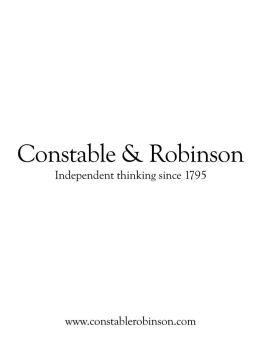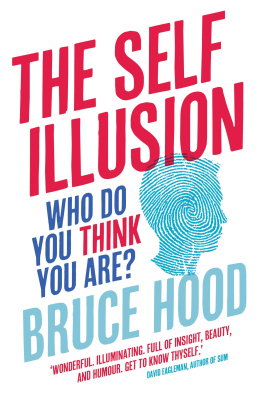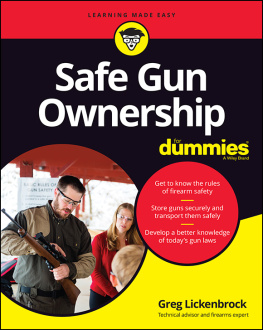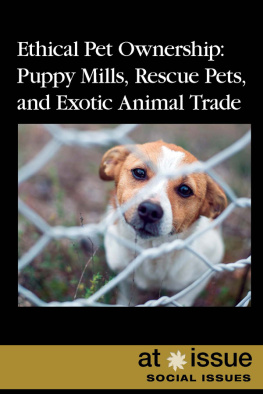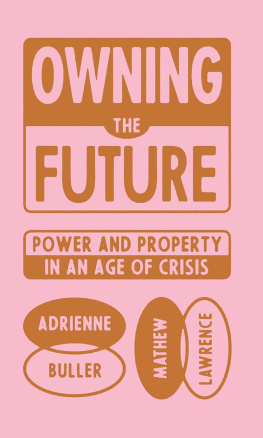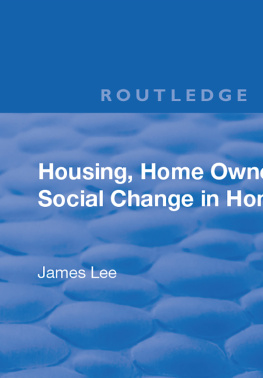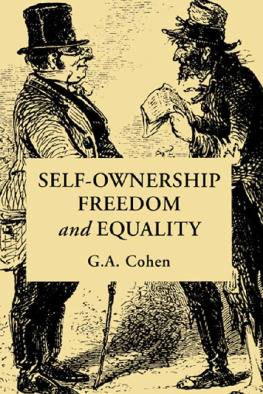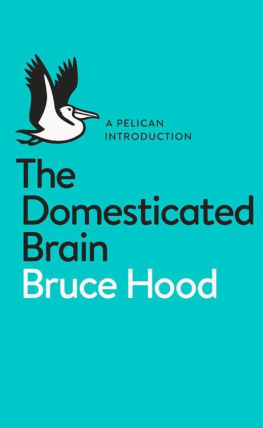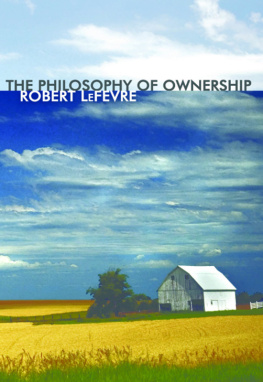
Bruce Hood
POSSESSED
Why We Want More Than We Need

Contents
About the Author
Bruce Hood is Professor of Psychology at the University of Bristol and the author of SuperSense, The Self Illusion and The Domesticated Brain. He is an elected Fellow of the Association for Psychological Science, the British Psychology Society and the Royal Institution of Great Britain.
For my lawyer brother, Ross; someone who has made a career out of ownership but, in spite of this, remains one of the most generous human beings I have known.

Prologue
If the whole of Earths existence were a 24-hour clock, then our species, Homo sapiens, which evolved around 300,000 years ago, would appear at about 5 seconds to midnight. Each of our individual lives represents an even more infinitesimal time in the life of the universe. That you are even here at all is a miracle. The likelihood of any of us being born is almost zero when you think about all the other countless eggs and sperm that never met, and all the individuals who could have potentially existed, compared to those of us who were actually born. If you are reading this, then you have also probably been given certain opportunities in life that are denied to many. Education and access to books are not shared with all of humanity. We are very fortunate to be here, even for such a short time. And yet, how do we typically spend this precious moment of existence? In the relentless pursuit of ownership, mostly, and defending what is ours from those who seek to take it away.
We are so lucky to exist in the first place, and yet many of us who live in affluent societies pursue lifestyles that have the goal of accumulating as much stuff as possible, in the belief that this is our purpose in life. After our basic needs and comforts are met, however, acquiring more stuff is rarely fulfilling; yet there is an insatiable desire to own more. Humans are not content to just exist within the physical universe, but rather we feel the compulsion to claim as much ownership over it as possible, because we believe the more we possess, the better we will be. We come into existence for the duration of a lifetime, our physical bodies made from the particles of stardust from a distant cosmic explosion, and then spend much of that life staking our claim over parts of the universe! Not only is this a gross miscalculation of our importance, but the pursuit is ultimately pointless.
During our time on this planet, we fight for property, fence it off, covet it and feel that the goals of life come down to everything we can claim ownership over, only to die and return to dust and never know what becomes of the stuff we worked so hard to get. We spend our lives building sandcastles with turrets and moats to defend from intruders, only for them to be washed away by the waves of time. We are not ignorant. We know we are not immortal and cant take stuff with us, but the pursuit of possessions is an all-consuming drive that gives many of us our purpose in life.
We are defined by what we own, and the psychological power of ownership is so strong that individuals will risk their lives to keep their possessions. The prospect of death should be a sobering reminder of the ultimate futility of ownership. Yet in 1859, 450 passengers on the Royal Charter, returning from the Australian goldmines to Liverpool, drowned when it was shipwrecked off the north coast of Wales. Many were weighed down by the gold they would not abandon so close to home. History and mythology are littered with tales of materialistic folly, from the legend of King Midas with his golden touch, unable to appreciate his wealth, to the reality of recurrent boombust economic cycles of the modern era where ordinary lives are shattered by financial institutions gambling with the global economy. Its not just gamblers who have an addiction to wealth accumulation; so does the majority of mankind.
Our lives are controlled by the accumulation of possessions, and with each new generation we discard most of what was left to us and set out to acquire our own new stuff. It is not enough to own, but rather we pursue more stuff, because in doing so we are satisfying the urge to acquire. Possessions are associated with individuals and each of us wants to carve out our own piece of the universe by what we own. Twenty years ago, my wife, Kim, and I inherited the worldly possessions of her parents, who had both died fairly young. These are household items that her parents had cherished. We still use a few items, but most are stored away in the attic. We should get rid of them, but Kim cannot bring herself to do so because it would represent removing the last physical trace of her parents.
All of us leave behind evidence of ourselves through what we owned. Much of the appeal of memorabilia and antiques is this connection with the past. I like to visit auction houses and second-hand shops to marvel at the sorts of possessions that filled up peoples lives. Everything was once owned by someone who may have thought it was the most desirable thing to have. They may have worked hard for it, felt the joy of owning it or even risked their lives to get it. Maybe a medal for bravery, a collection of toy cars, or a silver-backed mirror all these items could have had some special significance for the previous owner. How would you feel knowing that personal stuff you cherish will be discarded eventually, or sold to someone who has no idea who you are? Not everyone would be bothered, and some of us are clearly more obsessed by materialism than others, but ownership reveals something profound about what motivates us as a species. The word motivate is apt here as it comes from the word emotion. Why do we feel the need to own? And why does ownership produce such emotional capital?
The rich have more wealth and can buy more stuff than the poor, but possessions represent more than simply economic status. Rather, we have an emotional relationship with many of the things we own or aspire to own. We think that happiness comes from getting what we want, but very often what we want does not make us happy. The psychologist Dan Gilbert calls this miswanting and it is a common human affliction. We are just not very good at predicting how much joy and satisfaction that acquiring things will bring us. This is particularly true for ownership and, indeed, much consumer advertising works by selling us the promise that we will be happier owning particular products.
Take the pride and joy for many people in the West: the first car that they own. Many will work hard to attain one, feel pride in acquiring it and will defend it vigorously. It becomes part of their identity. Every year, owners are seriously, even fatally injured trying to prevent the theft of their vehicles which are leased or insured. Its not the money at stake but rather the ownership. When someone threatens to take our stuff we behave unreasonably, as if the threat is directed at us personally. This can lead to an unhealthy relationship with our possessions. Car owners have been known to stand in front of speeding vehicles in a futile attempt to keep their possession, and yet, in the cold light of day, few rational individuals would endanger their lives for the value of a car. But, equally, we can become easily dissatisfied with our cars and feel the pressure to upgrade when we see our neighbours new car in their driveway. Ownership fuels competition. In this one-upmanship race we cannot all be winners as there is always someone ahead of us and there must be those behind us.
Next page

